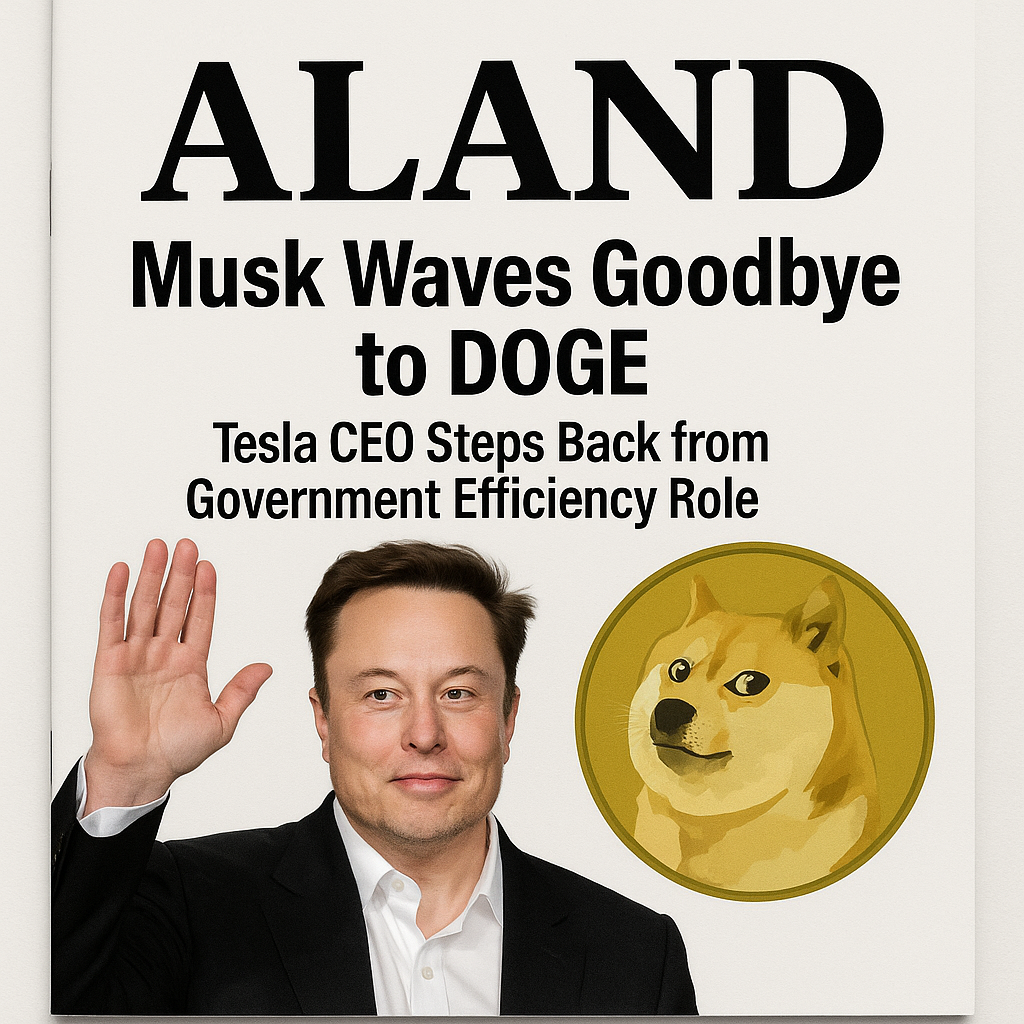Musk Waves Goodbye to DOGE: Tesla CEO Steps Back from Government Efficiency Role
Published Date: 23 Apr, 2025
In a surprise move that sent Tesla shares soaring and reignited debate over corporate involvement in government, Elon Musk announced on April 23 that he will significantly reduce his role in the White House’s Department of Government Efficiency (DOGE), refocusing his efforts on Tesla’s beleaguered operations. The decision arrives just weeks after Musk’s team at DOGE claimed credit for hundreds of billions in federal savings—and amid mounting criticism from whistleblowers, civil-liberties groups, and political rivals.
From White House Wunderkind to Part-Time Advisor
Musk joined DOGE in January 2025 as a “special government employee,” tasked by President Trump with overhauling the sprawling federal bureaucracy. His mandate: slash waste, streamline agencies, and deliver up to $2 trillion in savings over four years. In just three months, DOGE announced measures ranging from mass buyouts at USAID to proposed dismantling of the Consumer Financial Protection Bureau—claims that Musk touted as “unprecedented efficiency gains.”
Yet those sweeping pronouncements drew skepticism. A recent whistleblower complaint alleged that DOGE operatives threatened IT staff at the National Labor Relations Board while pursuing aggressive data-extraction tactics—raising conflict-of-interest concerns given Musk’s private-sector stakes in AI and data services. Meanwhile, the ACLU sued for access to DOGE records, warning that the team had sought “millions of Social Security numbers” and other sensitive citizen data without clear legal authority.
The Profit Slump That Changed Priorities
Musk’s announcement came mere hours after Tesla reported a startling 71% plunge in Q1 profits and a 13% drop in vehicle deliveries—a downturn analysts largely attributed to Musk’s White House detour and growing competition in the EV market. In after-hours trading, Tesla’s stock jumped over 5% on news that Musk would “spend less time in Washington” and more on core automotive and energy businesses.
“While I remain committed to government efficiency, Tesla needs me now more than ever,” Musk said in a statement. He indicated he would continue advising DOGE “one or two days per week” through its authorized mandate ending July 2026—but that day-to-day leadership would pass to deputy director Allison Huynh, a Silicon Valley entrepreneur turned policy wonk.
Political Reactions and Industry Ripples
Inside the administration, responses were mixed. President Trump praised Musk as a “patriot doing vital work,” but acknowledged that private-sector demands must come first. Vice President JD Vance—who had publicly defended DOGE’s territorial-concession recommendations on Ukraine—said the transition was “smooth and expected,” noting that Musk’s “primary mission has always been Tesla.”
On Capitol Hill, Democrats seized on Musk’s retreat as evidence that extreme cuts had harmed federal capacity. Senator Elizabeth Warren called for hearings into DOGE’s “opaque operations” and demanded disclosure of all data-access logs. The ACLU’s lawsuit is set for a May hearing, which could force the White House to reveal internal DOGE memos and expenditure justifications.
Meanwhile, Tesla competitors cheered Musk’s refocus. A spokesperson for Volkswagen Group called the pivot “wise,” suggesting that renewed Tesla leadership attention could intensify the EV market race. Chinese EV makers—already nibbling away at Tesla’s market share—see Musk’s split attentions as an opening to solidify global sales.
What’s Next for DOGE—and for Tesla?
With Musk stepping back, DOGE enters a critical phase. Deputy director Huynh inherits an agency under fire for:
-
Overstated Savings: Initial $2 trillion claims have been revised down to $150 billion after internal audits.
-
Legal Scrutiny: A whistleblower report to Congress alleges “technological malfeasance” and potential breaches at the NLRB and Department of Labor.
-
Transparency Demands: The ACLU suit may unmask how DOGE balanced efficiency with privacy.
Analysts say DOGE’s future hinges on demonstrating tangible agency improvements—rather than headline-grabbing layoffs—and on weathering legal challenges. Some predict Huynh will shift from dramatic cuts to process reengineering, using AI tools (ironically, some developed by Musk’s own companies) to optimize workflows.
For Tesla, Musk’s recommitment could spell accelerated rollouts of its long-promised driverless Robotaxi service in Austin by June, plus renewed focus on the lower-cost Model Y variant aimed at staving off competition in China and Europe. Investors, who punished Tesla stock for divided leadership, have already nudged the price up on hopes of sharper operational focus.
The Broader Implications
Musk’s oscillation between corporate titan and government fixer underscores a growing trend: tech billionaires blurring public-private boundaries. While their expertise can turbocharge reforms, it also raises questions about accountability, conflicts of interest, and the proper role of unelected “special employees.”
“Efficiency is more than headcounts,” says Linda Fowler, a public-administration scholar at Georgetown. “Real reform demands legislative buy-in, employee engagement, and transparent metrics—not just celebrity endorsements.”
As Musk retreats, the DOGE experiment leaves a legacy of ambitious goals, contested methods, and unanswered questions about data governance. Whether future administrations revive the model—or rein it in—will depend on the results Huynh can deliver and the legal rulings now in play.
Date: 23 Apr, 2025

